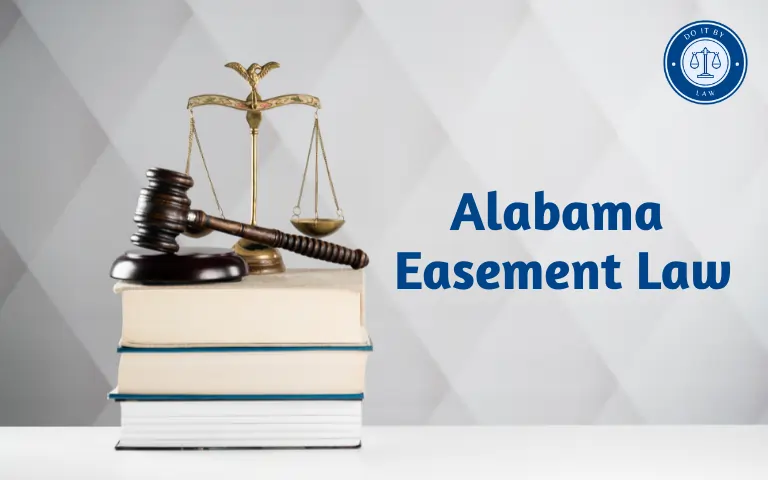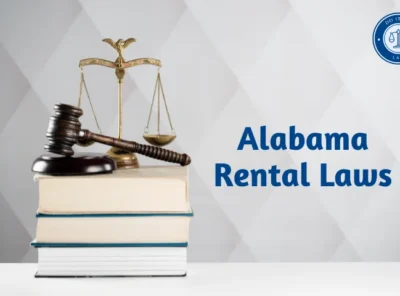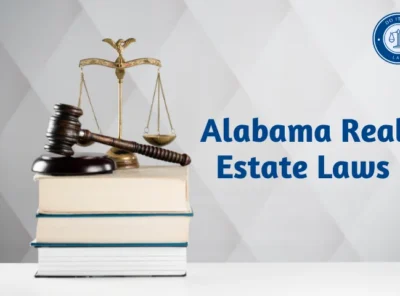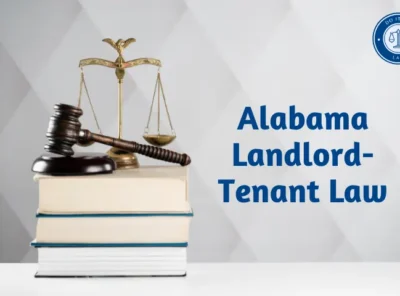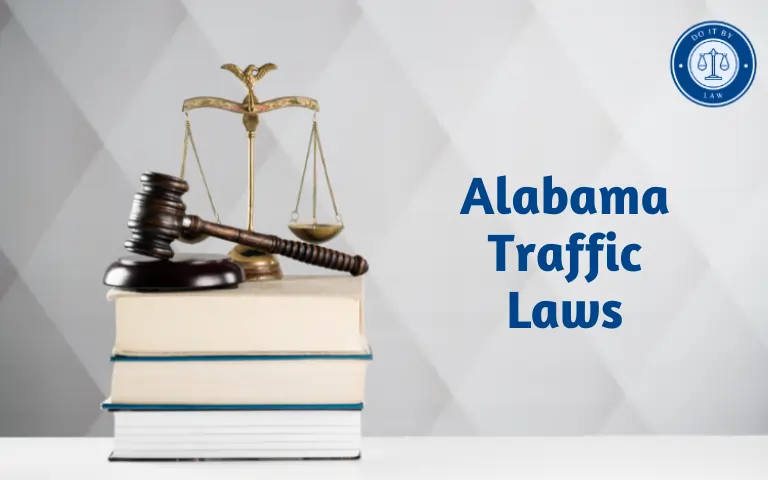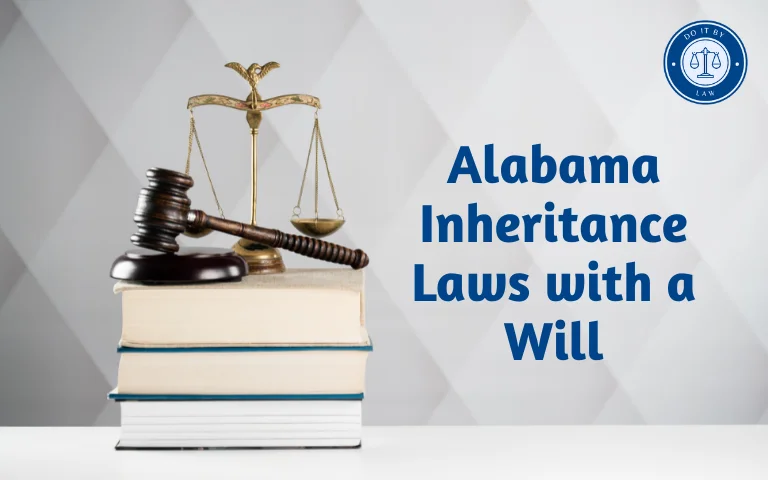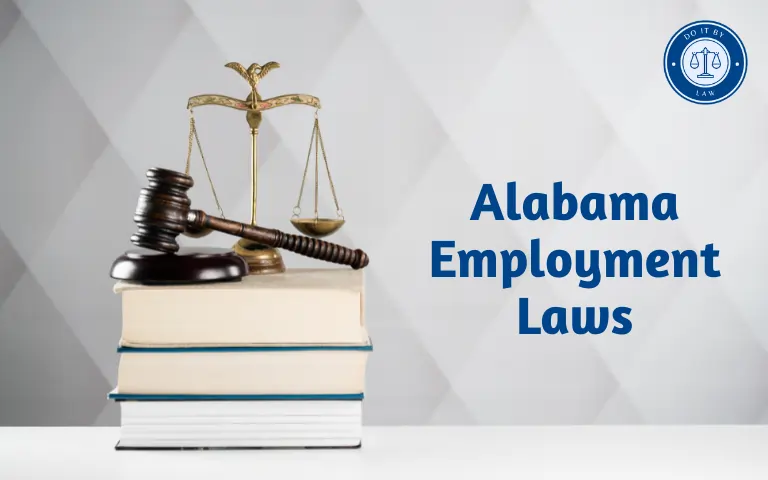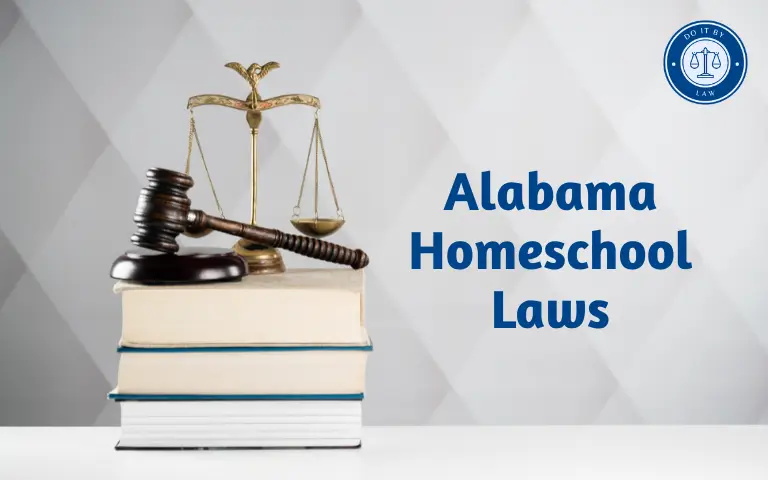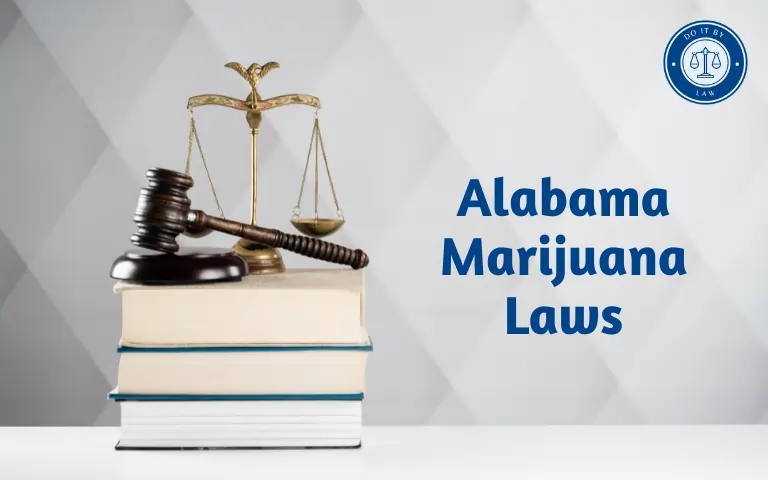Alabama Easement Law: Your Guide to Property Rights and Restrictions
Are you a property owner in Alabama wondering, “Can a property owner block an easement in Alabama?” or confused about easement laws in Alabama?
Easements, such as driveway easements or utility easements, can significantly impact your property rights and obligations. Misunderstanding Alabama property right of way laws or easement restrictions could lead to costly disputes or lost opportunities.
Whether you’re dealing with a prescriptive easement in Alabama, seeking compensation for easement on property, or curious about easement by necessity in Alabama, this guide breaks down the essentials in clear, actionable terms.
Our goal is to empower you with knowledge to protect your property and make informed decisions. Ready to dive into Alabama easement law? Know more about your rights and responsibilities below, and explore how to navigate easement parking rights, property line easement law, and more.
What Are Easements in Alabama Easement Law?
An easement in Alabama easement law is a legal right that allows a person or entity to use another person’s property for a specific purpose without owning it.
Easements are critical in Alabama property right of way laws, as they define how land can be accessed or utilized, often preventing disputes over property boundaries and usage.
They ensure that property owners and others, such as neighbors or utility companies, can coexist while respecting property line easement law.
Definition and Role
An easement grants non-possessory rights to use a portion of someone’s land, often for access, utilities, or maintenance. Under Alabama law code for easements, these rights are enforceable and may be documented in property deeds or established through legal processes.
Easements play a vital role in facilitating access (e.g., right of way laws Alabama) and supporting infrastructure like Alabama utility easement laws, ensuring properties function effectively.
Types of Easements
- Affirmative Easement: Allows the holder to perform specific actions on the property, such as crossing it to reach another parcel.
- Prescriptive Easement Alabama: Arises when someone uses another’s land openly and continuously for a statutory period (typically 20 years in Alabama) without permission, potentially granting legal rights.
- Easement by Necessity Alabama: Created when a landlocked property (is Alabama landlocked) requires access through another property to reach a public road, as per legal easement requirements.
- Private Easements: Agreements between private parties, such as neighbors sharing a driveway easement.
Key Alabama Statutes and Legal Provisions for Easements
- Alabama Code Title 35 – Property (General Property Laws)
- Section 35-2-50 et seq.: Addresses property boundaries, surveys, and rights related to property line easement law. While not exclusively about easements, these sections are relevant for disputes involving easement restrictions or Alabama property line laws.
- Section 35-9A-103: Part of the Alabama Uniform Residential Landlord and Tenant Act, this section indirectly relates to easements by defining property use rights, which can impact private easements or easement parking rights.
- Relevance: These statutes provide a foundation for understanding property rights, which are critical when determining can a property owner block an easement in Alabama or establishing easement by necessity Alabama.
2. Alabama Code Title 23 – Highways, Roads, Bridges, and Ferries
- Section 23-1-40 et seq.: Governs public rights of way, including Alabama property right of way laws for roads and highways. These sections may apply to utility easements or public access easements.
- Section 23-4-2: Addresses the vacation of public roads, which can impact who is responsible for right of way maintenance or whether a right of way can be sold.
- Relevance: These laws are crucial for understanding public easements and Alabama utility easement laws, especially for infrastructure like power lines or water systems.
Common Examples
- Driveway Easement: Permits a neighbor to use part of your land for a shared driveway, governed by easement for driveway rules.
- Easement Parking Rights: Allows specific parking access on another’s property, often seen in shared lots.
- Utility Easements: Grants companies access to install and maintain utilities like power lines or water pipes, as outlined in Alabama utility easement laws.
Understanding these easements helps property owners navigate easement restrictions and avoid conflicts.
Want to clarify your rights under Alabama easement law? Contact our legal team for expert guidance. Know more.
Types of Easements Recognized in Alabama
Understanding the types of easements is essential for both property owners and those seeking legal access to land. Under Alabama easement law, several easement types can apply, depending on the use, necessity, and legal rights involved.

🔹 Prescriptive Easement (Alabama)
Alabama Code Section 6-5-200 Defines the requirements for adverse possession, which closely relates to prescriptive easement Alabama. A prescriptive easement may be established after continuous, open, and adverse use of another’s property for 20 years (common law rule in Alabama).
- No formal agreement is needed.
- Often applies to private paths or roads used regularly.
- May be disputed or blocked if not properly proven in court.
🔹 Easement by Necessity (Alabama)
While not explicitly codified in a single statute, easement by necessity Alabama is recognized under Alabama common law when a property is landlocked (is Alabama landlocked) and requires access through another parcel to reach a public road. Courts rely on case law, such as Bull v. Salsman (1994), to enforce these easements.
- Courts must find that the easement is essential.
- Typically arises after a property is subdivided and one section lacks access.
- Does not require long-term use like a prescriptive easement.
🔹 Utility Easements in Alabama
Alabama Code Section 37-4-1 et seq. Governs utilities and their rights to access private property for infrastructure, as part of Alabama utility easement laws. These sections outline who owns a utility easement and maintenance responsibilities.
- Electrical lines
- Water or sewer pipes
- Gas lines or telecommunication systems
These easements often remain in place permanently and cannot be blocked by the property owner.
🔹 Private Easements vs. Public Easements
| Type | Description | Example |
|---|---|---|
| Private Easement | Agreement between individuals granting use | A neighbor can access a shared driveway |
| Public Easement | Grants the general public access to land | Sidewalks or public access roads |
🔹 Affirmative vs. Negative Easements
- Affirmative Easement: Allows the holder to use another’s land (e.g., for access or utilities).
- Negative Easement: Prevents a property owner from doing something, such as blocking light or airflow.
Can a Property Owner Block an Easement in Alabama?
In Alabama, a property owner cannot legally block a valid easement unless certain legal conditions are met. Easements—whether for utilities, driveways, or access to landlocked property—grant specific rights to another party. Blocking or interfering with these rights may result in civil penalties or court-ordered removal of the obstruction.
| Scenario | Can the Owner Block the Easement? | Explanation |
|---|---|---|
| Easement is legally recorded and in current use | ❌ No | Blocking a valid easement is illegal and enforceable through legal action. |
| Easement was verbally agreed but not documented | ✅ Possibly | Without legal documentation, enforcement may be difficult. |
| Easement is abandoned or unused for a long time | ✅ Yes | Courts may view prolonged non-use as abandonment of rights. |
| Use of easement exceeds scope (e.g., commercial use) | ✅ Yes (with legal backing) | If usage violates the original intent, blocking may be allowed via court. |
| Easement is expired or legally terminated | ✅ Yes | Owner may reclaim full control of the property. |
| Easement causes damage or misuse of property | ✅ Possibly (via court) | Landowners may petition the court for relief or modification. |
🧱 When Can a Landowner Legally Block a Right of Way?
- No legally recorded easement exists (verbal agreements may not hold).
- Easement terms have expired or been terminated by mutual agreement.
- The easement holder exceeds the intended use (e.g., commercial use of a residential easement).
🚗 What If Someone Blocks a Driveway Easement?
If a neighbor places a fence, gate, or other obstruction over a driveway easement, this may violate Alabama easement law. The easement holder may:
- File a civil complaint for interference.
- Seek court-ordered removal of the blockage.
- Request compensation if access has been unfairly denied.
📜 Alabama Property Right of Way Laws Explained
According to Alabama Code Title 35, easements must be:
- Clearly described in deeds or plats.
- Used only for their intended legal purpose.
- Maintained by the responsible party (often outlined in the easement agreement).
⚖️ Legal Enforcement and Resolution
If disputes arise:
- Mediation or negotiation is often the first step.
- Filing a lawsuit may be necessary in cases of refusal to comply.
- The court may award damages and enforce restoration of access.
🚫 Blocked easement? Schedule a consultation with an Alabama easement attorney
Rights and Responsibilities of Easement Holders
Understanding your legal rights and duties as an easement holder is essential to prevent disputes and avoid unintentional violations of Alabama easement law. Whether you’re using a driveway easement, utility easement, or a right of way easement, knowing where your authority ends is just as important as knowing where it begins.
| Aspect | Easement Holder Rights | Easement Holder Responsibilities |
|---|---|---|
| Access Use | Right to access or cross property as outlined in easement | Must not exceed the scope of granted access |
| Maintenance | Right to maintain the easement area for usability | Responsible for upkeep, repairs, and clearance |
| Construction/Alterations | May install minor improvements with permission (e.g., gravel, gate) | Cannot build permanent structures without explicit written consent |
| Parking Rights | May allow temporary access-related parking (if not obstructive) | Must avoid blocking or restricting others’ legal access |
| Utility Easements | Access to repair/maintain utility lines (if applicable) | Must restore any disturbed property to original condition |
| Legal Boundaries | Can enforce easement rights in court if access is blocked | Must comply with Alabama easement restrictions and local laws |
🔧 Who Is Responsible for Right of Way Maintenance?
Under Alabama property right of way laws, the easement holder is typically responsible for maintaining the easement area—especially if it’s for access or utility purposes. This includes:
- Grading or repairing a driveway easement
- Clearing debris or vegetation that blocks access
- Repairing any damage they cause to the land while using the easement
However, the original easement agreement or court ruling may assign responsibility differently, so it’s crucial to review any recorded easement documents.
✅ Tip: Shared easement? Costs may be split between users.
🛠️ Can Easement Holders Build or Alter Property?
Easement holders cannot build permanent structures on the servient land (the land the easement crosses) unless explicitly allowed in the easement agreement. For instance:
- Allowed: Installing a gate or gravel on a private road with the landowner’s consent
- Not allowed: Building sheds, garages, or commercial structures on the easement area
Making unauthorized changes could lead to legal challenges or removal orders under easement restrictions set by Alabama law.
🚗 Parking and Easement Restrictions
Easement parking rights are a gray area. Generally:
- Short-term parking may be tolerated if it doesn’t block access
- Long-term or habitual parking is often prohibited unless explicitly granted
- Obstructing others’ use of the easement (e.g., neighbors) could violate Alabama easement law
Private easements may come with unique restrictions, so always check legal documentation before assuming any use rights.
🚫 Blocked Easement? Download our free Alabama Easement Dispute Checklist to understand your options, rights, and next steps before taking legal action.
Compensation for Easements on Property
In Alabama, easements—whether for a driveway, utility access, or conservation—can involve compensation depending on how they impact the landowner’s property rights.
| Type of Easement | Compensation Required? | How Value is Determined | Common Scenarios |
|---|---|---|---|
| Driveway Easement | Often Yes | Reduction in market value, loss of privacy or access | Shared driveways, neighbor right of way |
| Utility Easement | Yes (typically one-time) | Size of easement, loss of use, potential damage | Power lines, water pipes, fiber optic cables |
| Conservation Easement | Sometimes (or tax credit) | Environmental value, tax incentives, development restrictions | Protected land from commercial or residential use |
| Prescriptive Easement | No | Gained over time through use without permission | Long-term unauthorized use of a path or driveway |
| Easement by Necessity | Usually No | Based on landlocked status and necessity, not compensation-based | Property only accessible via another’s land |
🏠 When Is Compensation Required?
Property owners are typically entitled to compensation when:
- The easement reduces usable land value
- The easement is sold or granted involuntarily (e.g., through eminent domain)
- The easement interferes with access, development, or resale potential
For example, if a utility company requires a utility easement, the landowner may receive a one-time payment based on appraised land value.
📈 Valuing a Driveway or Conservation Easement in Alabama
The value of an easement is usually determined by:
- Fair market value reduction of the affected area
- Purpose and exclusivity of the easement (shared vs. exclusive)
- Length and width of the easement zone
- In conservation easements, environmental or tax benefits may also apply
Example: A driveway easement allowing neighbor access may reduce privacy and resale value, prompting compensation negotiations.
💬 Can a Right of Way Be Sold?
Yes, easement rights—especially affirmative easements like a right of way—can be sold, transferred, or inherited as part of a deed or recorded agreement. However:
- Consent of the servient estate (property owner) is often required
- Transfer terms must align with Alabama easement laws
✅ Get Clarity Before You Sign
📄 Download our Free Easement Valuation Guide (PDF)
Understand your rights, estimate fair compensation, and learn how to negotiate with utility companies or neighbors.
Easement Disputes and Legal Remedies in Alabama
Easement conflicts can quickly escalate—especially when landowners block access, alter shared spaces, or violate terms of an established easement. Understanding your rights under Alabama Code Title 35 – Property, particularly Section 35-3-1 through 35-3-4, can help you resolve issues legally and efficiently.

When to Seek Mediation or File a Lawsuit
- ✅ Start with negotiation: Try resolving informally with the other party.
- 🤝 Mediation: Involves a neutral third party. Often faster and less expensive than litigation.
- ⚖️ Litigation: Appropriate when access is blocked or the dispute involves significant property value loss.
📌 Alabama courts may grant an injunction, award compensation, or even force an easement redefinition.
Resolving Easement Encroachment: Step-by-Step
- Review property records (deed and plat maps).
- Consult a surveyor to establish boundary lines and easement scope.
- Send a formal notice to the party violating the easement.
- Seek mediation or file a complaint in Alabama civil court if unresolved.
- Document all communications and evidence for legal support.
Do You Need a Real Estate Attorney?
While you’re not required to hire a lawyer, working with a qualified real estate professional is highly recommended in these cases:
- The easement affects access to your landlocked property
- There’s a title dispute or unclear ownership
- You’re facing potential property damage or blocked utilities
📘 Free Resource: Download our Easement Dispute Checklist for Alabama (PDF) – includes red flags, legal steps, and contact options for local help.
Recent Updates to Easement Laws in Alabama (2024–2025)
Understanding recent legislative updates is essential if you’re managing or disputing an easement in Alabama. Between 2024 and 2025, several important changes have been enacted, especially regarding utility access, landlocked property rights, and compensation for easement use.

Key Legal Changes
| Update | Description | Impact |
|---|---|---|
| Utility Easement Clarification | Alabama clarified obligations for utility companies to maintain and notify landowners before work. | More transparency and reduced disputes over property damage. |
| Compensation Rights Expanded | New rules now allow for broader compensation eligibility when easements affect market value. | Property owners may qualify for payments even with long-standing access. |
| Private Road Easement Reform | Legislation tightened rules for informal or historic road use being claimed as prescriptive easements. | More protection for owners against unpermitted claims of access. |
| Digital Filing for Easement Claims | Easement documents can now be filed digitally in many counties. | Easier to track and validate legal rights to an easement. |
Impact on Landlocked Property & Prescriptive Easements
- Landlocked property owners now have clearer legal pathways to demand easement access—especially through easement by necessity.
- Prescriptive easements (gained by long-term use) face tighter scrutiny. Claimants must now show uninterrupted, open, and adverse use for 20+ years, with stronger proof requirements.
🔍 Did You Know? Many landowners lose easement rights by not documenting or defending them. Stay informed.
📘 Free Download: Alabama Easement Law Changes 2025 – Summary PDF Guide
Penalties for Violating Alabama Easement Law
Violating Alabama easement law—such as interfering with easement rights, disregarding Alabama property right of way laws, or misusing a driveway easement—can result in significant legal and financial consequences.
Penalties vary based on the violation’s severity, the easement type (e.g., utility easement, prescriptive easement Alabama, easement by necessity Alabama), and the harm caused.
| Violation | Description | Potential Penalties | Relevant Law/Code |
|---|---|---|---|
| Blocking an Easement | Physically obstructing access to a driveway easement, easement by necessity Alabama, or utility easement (e.g., fencing off a right of way). | – Injunction: Court order to remove obstruction. – Compensatory Damages: Payment for losses caused (e.g., $500–$10,000+, depending on impact). – Attorney Fees: Violator may cover legal costs. – Punitive Damages: Rare, for willful violations (case-dependent). | Alabama common law; Cleek v. Peyer (1986); Ala. Code § 35-2-50 (property boundaries). |
| Misusing an Easement | Using an easement beyond its scope, e.g., parking on a driveway easement without easement parking rights or overloading a utility easement. | – Cease and Desist Order: Stop improper use. – Damages: Compensation for property damage or lost use (e.g., $1,000–$5,000). – Easement Termination: Rare, if misuse is severe. | Alabama common law; Ala. Code § 37-4-1 (utilities). |
| Neglecting Maintenance | Failing to maintain a right of way or utility easement as required (e.g., overgrown vegetation blocking access). | – Court-Ordered Maintenance: Violator must perform or fund repairs. – Fines: Local ordinances may impose fines ($100–$1,000). – Damages: Pay for harm caused by neglect. | Ala. Code § 23-1-40 (public rights of way); easement agreements. |
| Unauthorized Alteration | Altering easement property, e.g., paving over a utility easement or removing conservation easement Alabama features. | – Restoration Costs: Pay to restore original state (e.g., $2,000–$20,000+). – Injunction: Stop further alterations. – Damages: Compensate for losses. | Ala. Code § 35-9A-103 (property use); federal conservation laws. |
Penalties by Easement Type
| Easement Type | Violation Example | Penalty Range | Notes |
|---|---|---|---|
| Driveway Easement | Blocking neighbor’s access to a shared driveway. | – Injunction + $1,000–$5,000 in damages. – Attorney fees. | Courts prioritize restoring access; see property line easement law. |
| Utility Easement | Obstructing utility company access under Alabama utility easement laws. | – $2,000–$15,000+ in damages. – Restoration costs. | Who owns a utility easement? Utility companies have strong legal protections. |
| Prescriptive Easement Alabama | Interfering with a long-established use (e.g., blocking a path used for 20+ years). | – Injunction to restore access. – $500–$3,000 in damages. | Requires proof of continuous use; Ala. Code § 6-5-200. |
| Easement by Necessity Alabama | Blocking access to a landlocked property (is Alabama landlocked). | – Immediate injunction. – $5,000–$10,000+ in damages. | Courts strictly enforce for access; Bull v. Salsman (1994). |
| Conservation Easement Alabama | Violating environmental restrictions. | – Fines up to $10,000+. – Loss of tax benefits. | Governed by federal/state conservation laws. |
Additional Consequences
- Civil Lawsuits: Violators may face lawsuits from easement holders, leading to costly legal battles. For example, disputes over easement real estate or easement disputes Alabama often require mediation or court intervention.
- Property Value Impact: Violations can reduce property value, especially if easements like a driveway easement or easement for driveway are contested, affecting how much does a driveway easement cost in negotiations.
- Criminal Penalties (Rare): Intentionally damaging public utility easements or right of way laws Alabama infrastructure may lead to misdemeanor charges under Ala. Code § 13A-7-23 (criminal mischief), with fines up to $2,000 or jail time (up to 6 months).
- Reputation Damage: For businesses, violating Alabama easement law can harm community standing, especially in easement real estate transactions.
Mitigating Penalties
- Negotiate with Easement Holder: Resolve disputes amicably to avoid court costs, especially for private easements.
- Consult an Attorney: Legal advice can clarify Alabama law code for easements and prevent violations, such as misinterpreting easement restrictions.
- Review Easement Agreements: Ensure compliance with terms, including who is responsible for right of way maintenance or compensation for easement on property.
- Seek Mediation: For easement disputes Alabama, mediation can reduce costs compared to litigation.
Disclaimer: This information is based on general interpretations of Alabama law as of April 30, 2025, and is not legal advice. For specific cases, consult a licensed attorney or refer to the official Alabama Code at legislature.state.al.us.
Conclusion: Protect Your Property Rights in Alabama
Navigating Alabama easement law is crucial for safeguarding your property rights, whether you’re granting access through a driveway easement, managing a utility easement, or defending against encroachment under Alabama property right of way laws.
Missteps in understanding can a property owner block an easement in Alabama, easement restrictions, or prescriptive easement Alabama can lead to costly disputes or penalties. From securing compensation for easement on property to clarifying who is responsible for right of way maintenance, knowledge is your best defense.
If you’re uncertain about your obligations or need to enforce or challenge an easement, don’t risk your investment—consult a qualified real estate attorney to ensure compliance with Alabama law code for easements and protect your interests.

